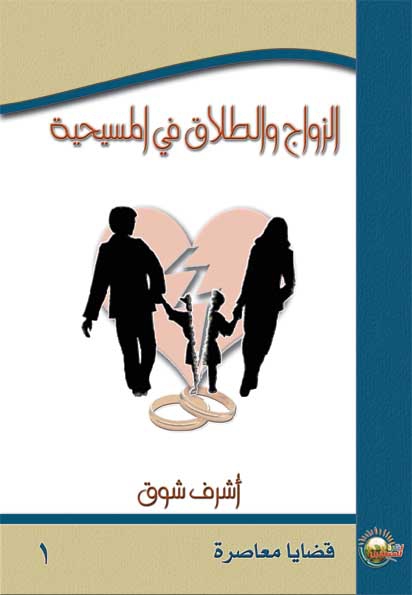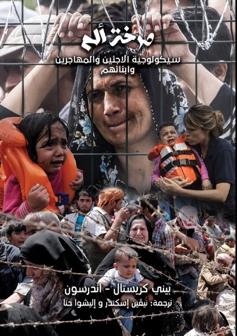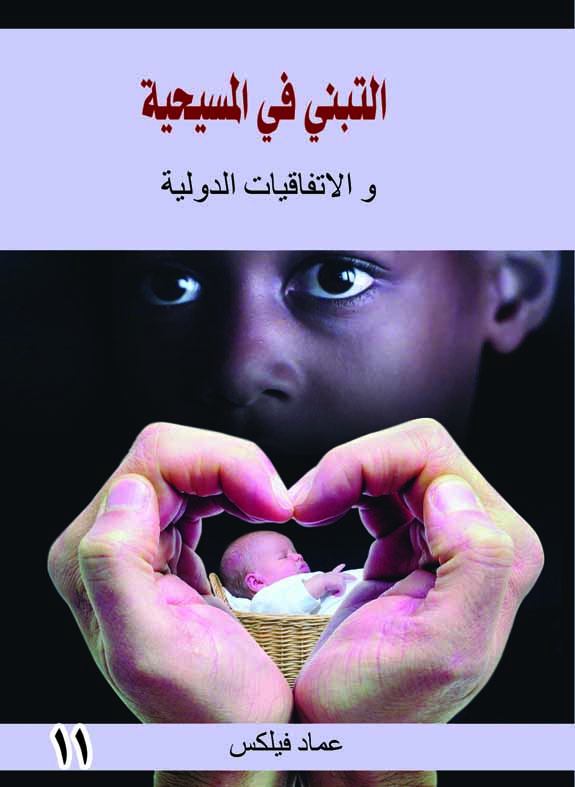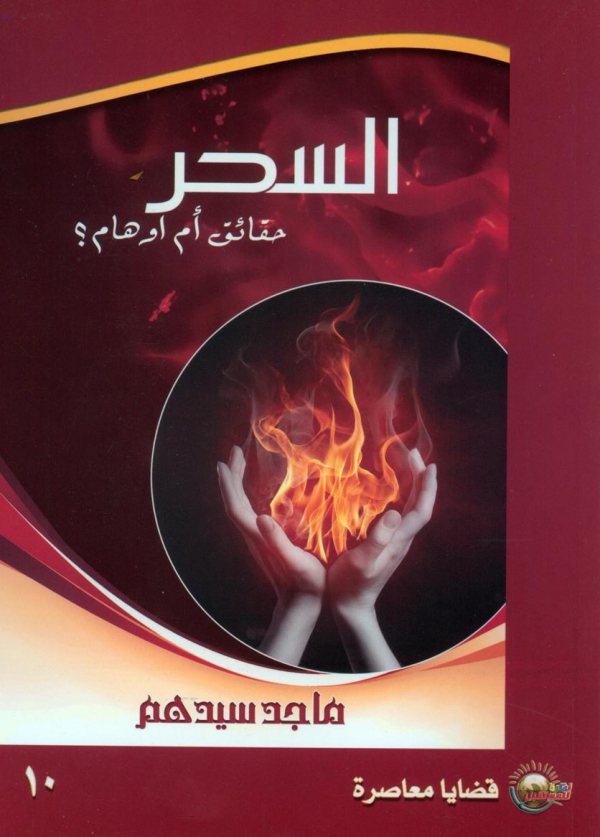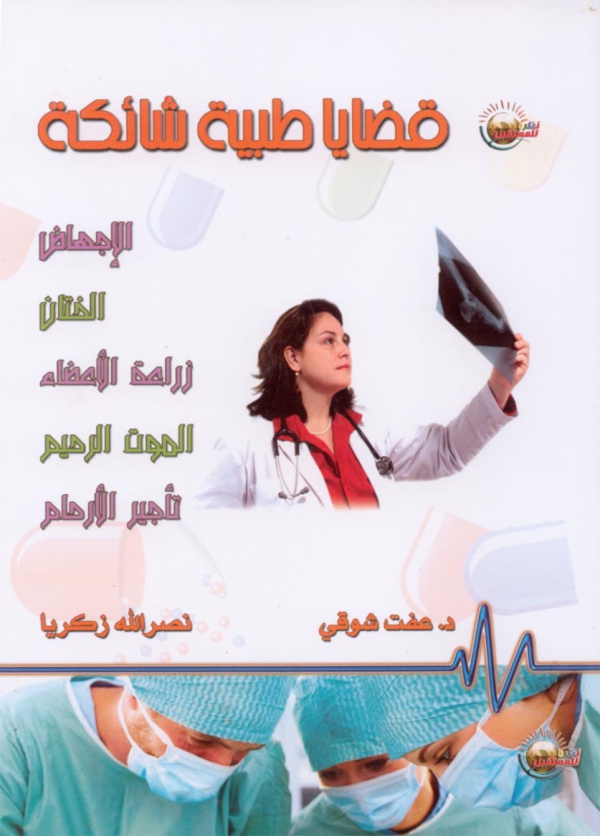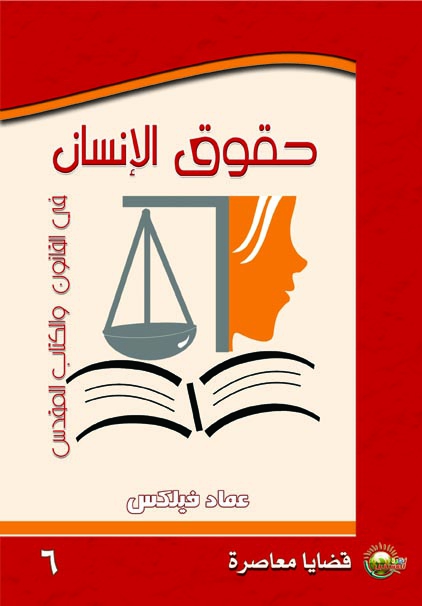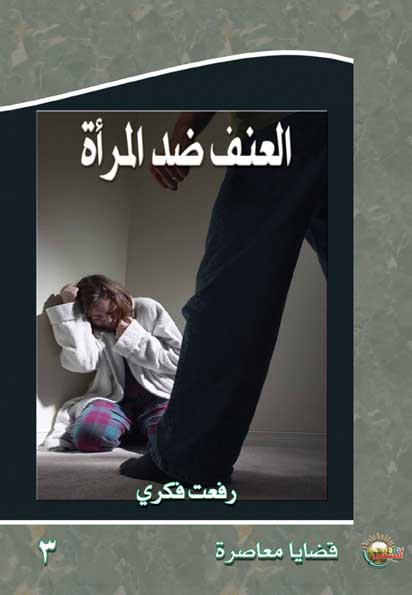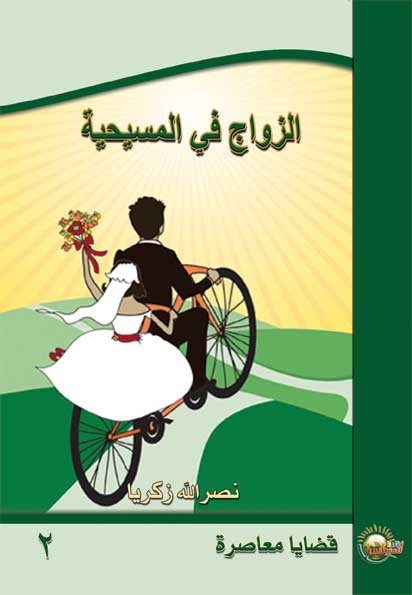Contemporary Issues
The Bible touches on every aspect of our spiritual lives and on our relationships with God. Furthermore, it does not ignore the difficult issues we face in our contemporary lives. It is a book for all times. When we face an issue, we find that the biblical perspective's thinking about it is clarifying. This series deals with contemporary issues (such as divorce, abortion, death and addiction) from a biblical perspective.
Marriage And Divorce In Christianity
الكاتب: Pastor Ashraf Shooq
الناشر: Vision For Future
Marriage and divorce in Christianity has always been one of the biggest issues for philosophers to tackle. Scientists, theologians, and philosophers have been unable to develop or agree on final solutions for the problems around marriage and divorce because of the divergence of the ramifications, and also because of the range of different religious, cultural, and environmental factors, which all play major roles in judging these most controversial of matters. Therefore, the author tackles this issue in several ways through this medium-sized book of 130 pages.
One of the most important points that the writer touches on in the opening chapter is marriage from the biblical and theological perspective. The second chapter is entitled "Legal and Social Perspective on Divorce." Finally, the third chapter discusses the moral perspective on divorce.
The biblical and theological perspective of marriage:
Pastor Ashraf begins with a general definition of marriage. He considers Genesis 2:24 to be the key verse defining Christian marriage, "That is why a man leaves his father and his mother and is united to his wife, and they become one flesh." Jesus himself used this verse when a Jewish clergy asked him about his point of view on the reasons for divorce. We can deduct from this verse the elements of marriage, as follows:
• Marriage is a relationship between two people: a man and a woman.
• Marriage must be publicized, "a man leaves his father and mother."
• Marriage is an everlasting relationship, "is united to his wife."
• Marriage is completed by having sex, "become one flesh."
Thus, marriage is a covenant between two heterosexual people, a man and a woman, planned and sealed by God. The leaving of parents publicly precedes marriage, and marriage is finally completed by the act of sexual union. As a result, the mutual affection and love that prevail in such a marriage are often crowned by the gift of a child.
The author chronologically displays the development of the meaning of marriage during a number of different historical-cultural eras: pre-law, the law, and pre-Christian contexts, and finally, within the contexts of the Orthodox, Protestant, and Catholic denominations.
The writer discusses the Biblical and theological perspective on divorce. He demonstrates the teaching of the Old Testament on divorce, the teaching of the Jesus about divorce, the teaching of the Apostle Paul about divorce, and finally the concept of divorce as was understood. Pastor Ashraf also presents the views of the Church Fathers, from a time before the denominations. As a specific example, he uses John Chrysostom to illustrate the point of the Fathers of the Church.
The second chapter, about the legal and social perspective on divorce, tackles the grounds for divorce according to Catholic, Protestant, and Orthodox Christianity. He explains that, based on Jesus' words, Christians are not permitted to divorce: "What therefore God has joined together, let no man separate," (Matthew 19:6), and, "Whoever divorces his wife and marries another woman commits adultery against her; and if she herself divorces her husband and marries another man, she is committing adultery," (Mark 10: 11, 12). The apostle Paul also says that the relationship between the man and the woman in a marriage is like the relationship between Christ and the Church. As long as the relationship between Christ and the Church is everlasting, so also the relationship between husband and wife should be eternal.
The third chapter discusses the moral perspective on divorce. In this section, the author looks at the circumstances and conditions in which Jesus talked about marriage and divorce, because they shed light on this issue and help us to understand the different dimensions of Jesus' thinking about marriage. Since the teachings of Jesus are like the Constitution of our faith, we listen carefully to the Master's words about this topic, especially when he answered questions posed by the Jewish clergy. Jesus's answer to those questions was not just his way of thinking about a certain issue, he was answering all related questions raised by the topic in the details!
The Pharisees asked the Lord: "Is it lawful for a man to divorce his wife for any reason at all?" Although the question was limited to divorce and to its motives, Christ's answer focuses on marriage, on the reasons for its success, and on how marriage should be based on the perfect vision intended by God, who is the legislator of all marriages since the beginning of creation.
In his answer, Christ points to the severity of provisions in the law against those who commit adultery. The adulterer or adulteress were not punished by divorce, but by death, by stoning (Deuteronomy 22:24). Perhaps it was because of the horrifying cruelty, which the Jews saw during such a stoning, that Moses allowed them to divorce, as an attempt to avoid the bloody fate which should be applied to anyone who commits this sin. It was as if Moses were asking the Jews to choose between the lesser of the two evils: divorce instead of murder!
In answering this question Jesus reflected his awareness that the Bible is a book of principles, and not a book of legislations. Jesus reminded the crowd about the first state of the creation of man, "Male and female he created them." In that first state, divorce was not only forbidden, as such hateful and undesirable, but it was also impossible, because there was only one man and one woman in the world. If Adam had divorced Eve, he could not find another woman to marry!
Human experience shows that there is no law that cannot be manipulated. This is the problem with the sinfulness of the human heart. There is no human or religious legislation that is able to control the rebellion of this heart. It is only "the grace of God alone."
The author says that anyone who thinks that divorce ends complicated problems is deluded. The problems in a marriage do not end in a divorce, but they may begin with it. Divorce will never solve the main problem!
If divorce is a symptom, then the disease is sin itself, that is roots in and corrupting man. Divorce is only a manifestation of this deeper problem. The solution to this problem is not by preventing or forbidding divorce, but the church has to be aware of her responsibility and her role in helping the followers she leads to find the crucified Jesus who is also resurrected from death. The church has to win people for her great redeemer.
The writer mentions some of the categories of negative effects stemming from divorce, beginning with how these affect men, then the effect on women, and finally on families:
- The negative consequences resulting from divorce on an economic level may be lighter for men than women. Perhaps, if the man is rich enough, he will not be affected very much by spending money on his own home while also paying for the home of his ex-wife and his children.
- The most dangerous effects of divorce are the ones which are represented as the psychological consequences. Depression, isolation from community and friends, frustration and melancholy, uncertainty and loss of balance, are a few of the ways that men and women are both affected.
From the other perspective, the effects of divorce on women can be more harmful, including:
- Financial need,
- Worries and the negative thoughts that plague women,
- Suspicion seen in the eyes of others,
- and the Lack of opportunities to marry again."
Finally, the writer addresses many of the difficulties that face families which aggravate the problem further. The most obvious difficulties are: excessive preoccupation with work, lack of time spent with the other partner, the dominant culture of communities in which Christians are a minority, moral deviation, the absence of correct spiritual concepts, the weakness of the role of the family because of preoccupation with secondary matters, the intellectual complexity of life and change of economic values.
The writer concludes thus: "Despite the great importance of marriage, according to the biblical concept, because it was meant to be a project that lasts for the whole of life, most young men and women are not preparing themselves adequately for success in this project!
"University students may spend many years in their study at the Faculty of Medicine. They continue their postgraduate studies after graduation until they can gain the confidence of their patients, as in many practical areas of life. The question that imposes itself is: Do young people prepare themselves for marriage with the same care, diligence, and attention, especially since they are well aware of its continuation?!
We need to exert effort, give time, and show interest and care to be prepared for marriage. The Church needs to provide training courses for those who are going to marry soon, so the couple can understand the spiritual, psychological, moral and physical sides associated with this topic."
